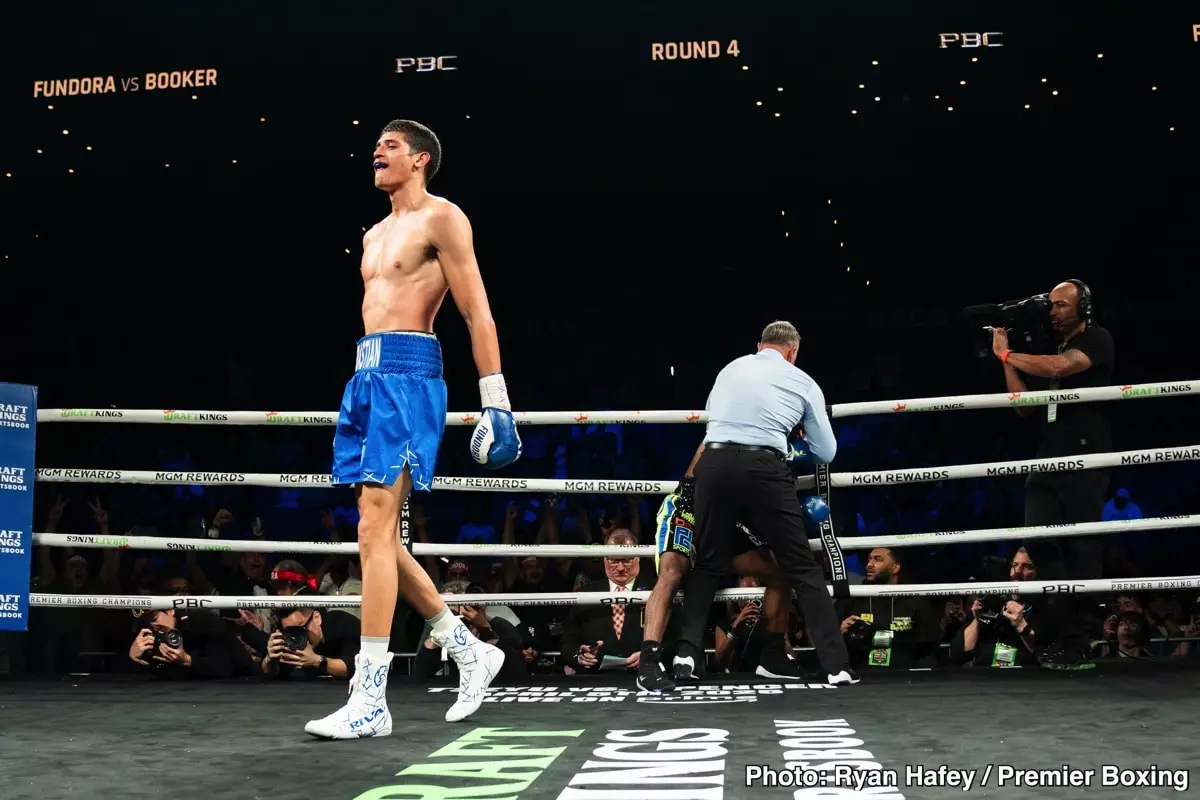The boxing world recently buzzed with excitement as the WBO officially mandated a title defense from Sebastian Fundora against his mandatory challenger, the untested Xander Zayas. With their futures hanging in the balance, both fighters have just 20 days to negotiate a deal, after which a purse bid could reshape the landscape of junior middleweight boxing. However, does this fight represent a genuine clash of titans, or merely a strategic maneuver by Zayas’s promoters at Top Rank to elevate him prematurely?
Both fighters come into this match with contrasting records and profiles. Fundora boasts a formidable 22-1-1 record, with 14 KOs under his belt, showcasing his knockout power and battle experience. In stark contrast, 22-year-old Zayas, at 21-0 with 13 KOs, has earned his spot as a mandatory challenger, though his competition has primarily consisted of subpar opponents. Critics argue that his rise has been carefully curated—a grooming process designed to construct a false sense of readiness. Is this elevated status a mere facade that could topple under real pressure, especially against someone like Fundora?
The Unification Aspiration
Complicating the narrative, Fundora’s promoter, Sampson Lewkowicz, has expressed a notable interest in pursuing a unification bout against IBF champion Bakhram Murtazaliev. The implication here is clear: Fundora’s ambitions to become an undisputed champion in the 154-pound division could very well eclipse his obligation to defend against Zayas. This creates a dramatic tension; will the WBO ultimately prioritize Zayas and permit him to capture a title without proving himself against seasoned fighters?
Fundora’s management team seems unconcerned about Zayas’s challenge, suggesting confidence in their fighter’s ability to thwart any struggle and advance toward broader aspirations. This inclination reflects a long-standing issue in boxing—the risks inherent in mandatory defenses. By potentially sidelining Zayas and dodging the obligatory match, Fundora could focus on fights that elevate his own brand and legacy.
A Potential Power Play for Zayas
For Zayas and his camp, the prospect of capturing the WBO title without facing Fundora is tantalizing, as elevating him to champion status could provide lucrative opportunities. The financial implications alone must weigh heavily in their calculations. If Zayas were to ascend solely based on Fundora’s hypothetical removal from the title picture, he could pocket substantial earnings before inevitably facing more formidable opponents who threaten his newly attained status.
Yet one cannot overlook the possibility that Zayas is setting himself up for a rough awakening. With his track record of competing against less experienced fighters, a showdown with Fundora, or even a match against powerhouse contenders like Charles Conwell, could expose his vulnerabilities. Boxing aficionados are questioning whether Zayas’s talent has been too carefully insulated—could he crumble under the pressures of elite competition?
The Broader Implications for Boxing
In the grand scheme, this situation underscores the delicate interplay of business and sport in boxing. Promotional tactics can shape champion status, but they also risk diluting the integrity of competition. Observing Zayas’s progress through less challenging bouts raises concerns not just for his future but also for the legitimacy of the junior middleweight division.
Investors, promoters, and fans alike should recognize that while Zayas has great potential, prematurely elevating him without real competition could undermine the authenticity of championship boxing. The stakes are indeed high, and the outcomes of these negotiations could ripple through the entire landscape of the sport. With time ticking away, fans eagerly watch to see if Zayas will step up to the plate or if he will remain a fighter cloaked in the shadows of matchmaking strategy.

